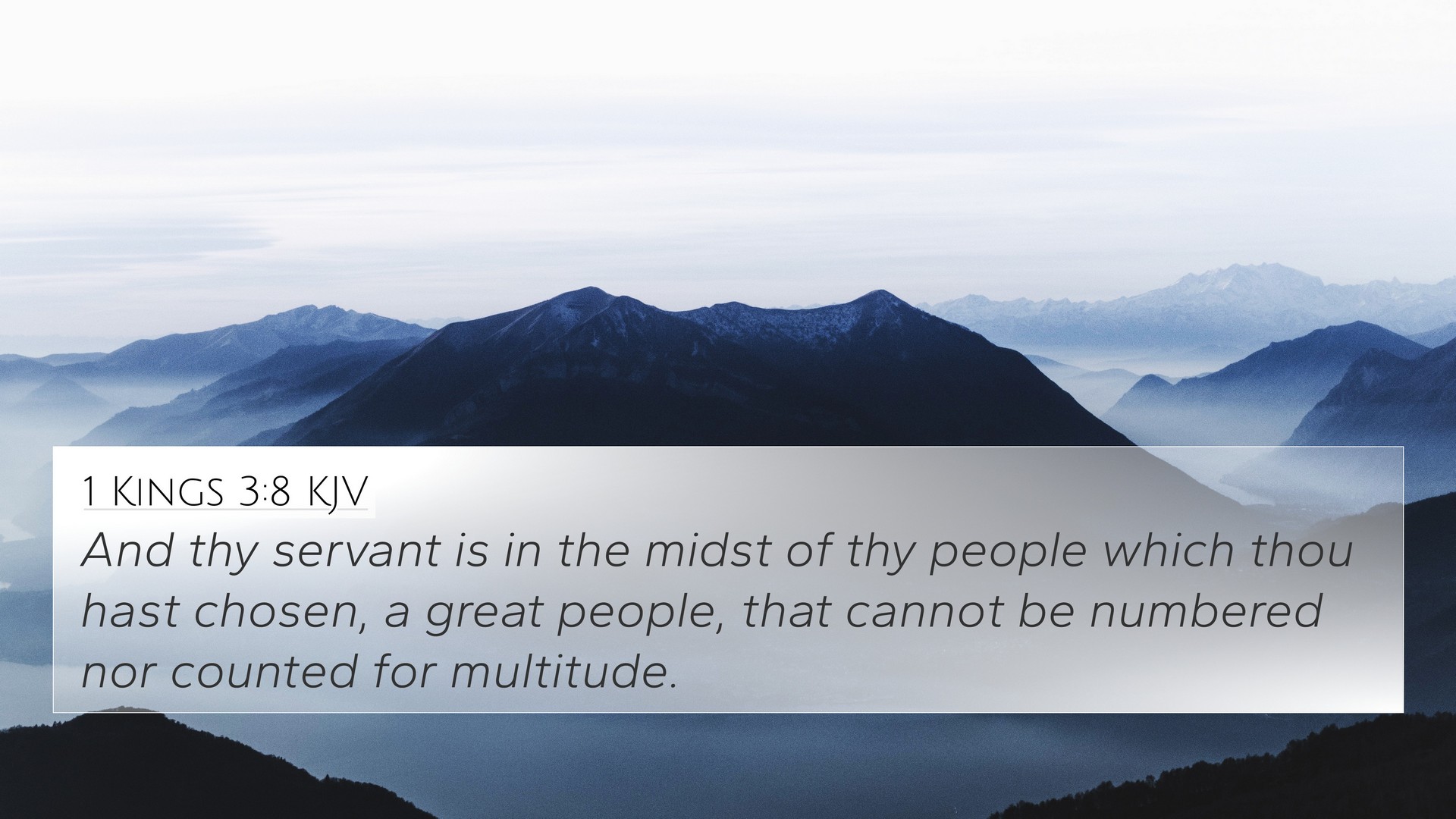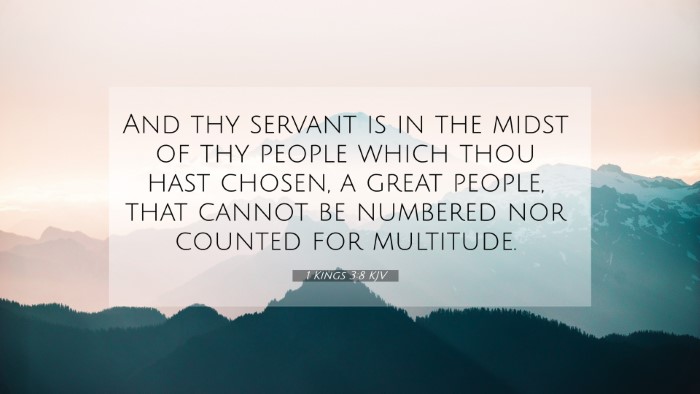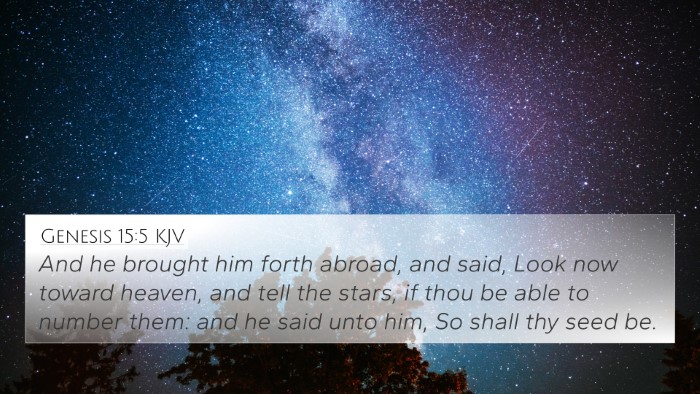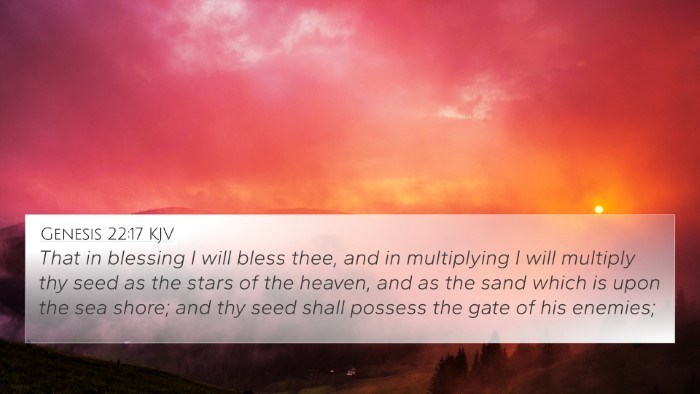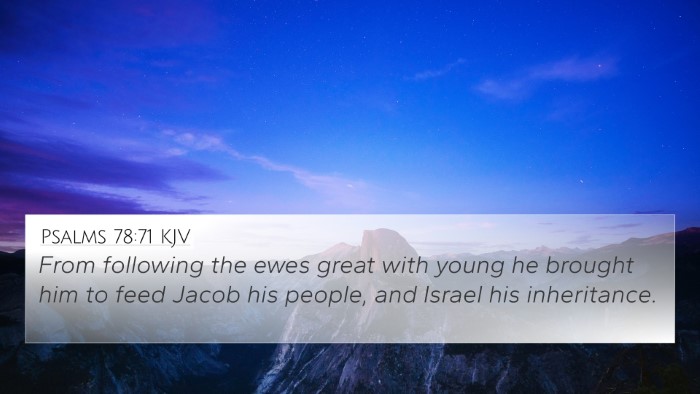Understanding 1 Kings 3:8
In 1 Kings 3:8, Solomon expresses the enormity of his task as the newly appointed king of Israel. He acknowledges the great responsibility he has in leading the people and the challenge of discerning right from wrong.
Historical Context
Solomon had just succeeded David, a king known for his heart for God and significant accomplishments. As Solomon took the throne, he understood that leading such a vast and diverse nation required wisdom beyond human capacity.
Verse Analysis
- Recognition of the Task: Solomon says, "Your servant is in the midst of Your people whom You have chosen," highlighting his humble recognition of God's chosen people and the weight of leadership.
- Desire for Wisdom: The plea for wisdom instead of wealth or long life shows Solomon’s understanding of what true leadership entails – the ability to judge and discern.
- Humility: Solomon’s self-identification as "a little child" emphasizes his humility and awareness of his limitations and the need for divine assistance.
Thematic Connections
This verse resonates with several themes in the Bible, particularly regarding wisdom, leadership, and reliance on God.
Key Themes:
- Wisdom: The pursuit of wisdom is a recurring theme in the Bible (Proverbs 1:7).
- Humility: A leader’s humility is often highlighted (James 4:6).
Cross-References
1 Kings 3:8 connects to various other scriptures that also emphasize the request for wisdom and the nature of leadership:
- James 1:5: "If any of you lacks wisdom, let him ask of God." - A direct encouragement for believers to seek wisdom from God.
- Proverbs 2:6: "For the LORD gives wisdom; from His mouth come knowledge and understanding." - Reinforces the source of true wisdom.
- Ecclesiastes 1:13: "I applied my heart to seek and search out by wisdom concerning all that is done under heaven." - Shows the importance of wisdom in governance and understanding life.
- Exodus 18:21: Jethro’s advice to Moses about selecting wise leaders reflects the need for discernment in leadership roles.
- 1 Chronicles 22:12: God’s promise of wisdom to Solomon also emphasizes God’s favor in providing wisdom.
- Proverbs 4:7: "Wisdom is the principal thing; therefore get wisdom." - Highlights wisdom’s foundational importance.
- Luke 2:52: "And Jesus increased in wisdom and stature, and in favor with God and men." - Shows the value of wisdom in Jesus’ life.
Interpretation in Biblical Literature
Commentators such as Matthew Henry, Adam Clarke, and Albert Barnes have provided insights into this verse, noting Solomon's wisdom as a divine gift and its significance in biblical history.
- Matthew Henry: In his commentary, he emphasizes the importance of divine wisdom over worldly riches, explaining that Solomon’s request reflects his understanding of righteous leadership.
- Albert Barnes: He notes Solomon’s humility and the acknowledgment that true wisdom comes from God, setting the stage for Solomon's rulership characterized by justice and fairness.
- Adam Clarke: Clarke highlights the implications of wisdom in decision-making processes within the Israelite community and how that wisdom directly impacts the legacy of Solomon's reign.
Conclusion
In summary, 1 Kings 3:8 serves as a profound illustration of the need for wisdom in leadership. It is a call to seek divine insight to govern effectively and compassionately, reflecting a theme that resonates throughout the Scriptures. The inter-Biblical dialogue confirms the consistency of seeking wisdom as exemplified by Solomon across both the Old and New Testaments.
More Resources on Cross-Referencing
For those interested in further analysis and study of connecting biblical texts, consider exploring tools for Bible cross-referencing. A comprehensive Bible cross-reference guide can aid in finding how different scriptures relate to each other, bringing greater depth to your biblical study.
